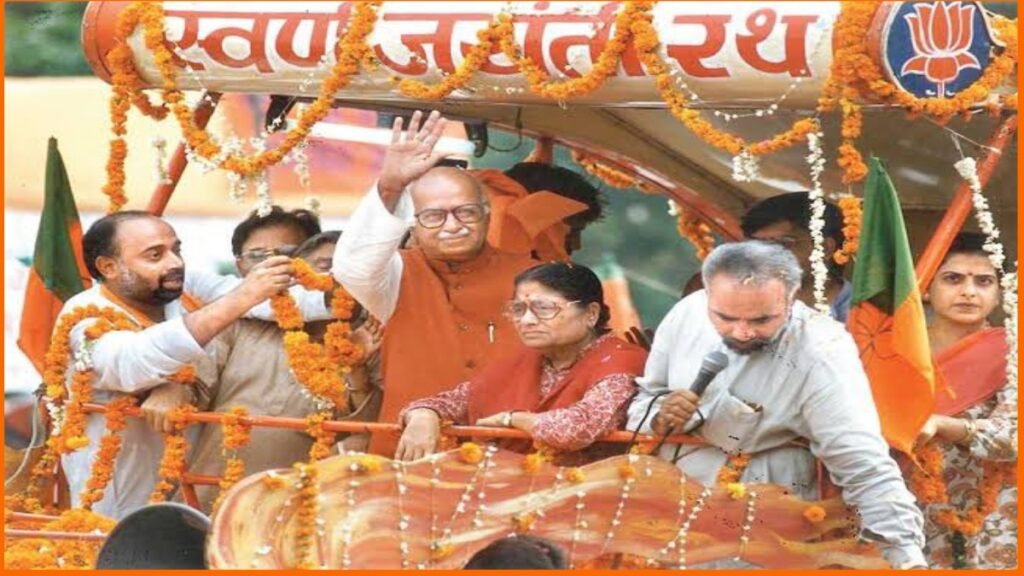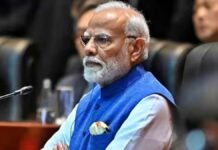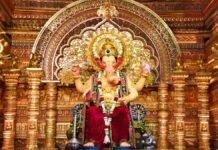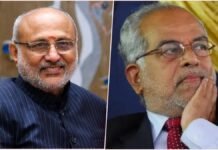
New Delhi: The Union government’s order to confer the Bharat Ratna, the nation’s highest civilian honor, to BJP stalwart Lal Krishna Advani has sparked a flurry of emotional reactions from his relatives, colleagues, and admirers from all walks of life. They expressed their gratitude and respect for the 96-year-old leader, who is one of the co-founders of the BJP and a former Deputy Prime Minister of India. They also highlighted his pivotal role in shaping the BJP’s ideology and agenda, as well as his long and illustrious career in public service that spanned over seven decades.
Lal Krishna Advani, a stalwart in Indian politics, has played a pivotal role in shaping the political landscape of the country. Born on November 8, 1927, in Karachi (now in Pakistan), Advani has been a key figure in the Bharatiya Janata Party (BJP) and has made significant contributions to the party’s growth, particularly in advocating the construction of the Ram Mandir in Ayodhya.
Early Life and Entry into Politics:
Advani’s early life was marked by his association with the Rashtriya Swayamsevak Sangh (RSS), a right-wing Hindu nationalist organization. His political journey began when he joined the Rashtriya Swayamsevak Sangh in 1942, and later became a part of the Bharatiya Jana Sangh, the political arm of the RSS. Advani’s leadership qualities and commitment to the party’s ideology quickly propelled him into prominent positions within the organization.
Advani’s rise within the political arena gained momentum when he was elected as the president of the Bharatiya Jana Sangh in 1973. During his tenure, he worked tirelessly to strengthen the party’s base and foster a sense of unity among its members.
Formation of the Bharatiya Janata Party (BJP):
In 1980, the Bharatiya Jana Sangh merged with several other political parties to form the Bharatiya Janata Party (BJP). This marked a significant development in Indian politics, as the BJP emerged as a major force that would go on to challenge the dominance of the Indian National Congress.
Advani played a crucial role in the consolidation of various right-wing groups under the BJP’s umbrella. His strategic acumen and organizational skills contributed to the party’s growth and expansion across the country. Advani served as the president of the BJP from 1986 to 1991, a period during which the party continued to gain popularity.
Rath Yatra and Ayodhya Movement:
One of the defining moments in Advani’s political career was the Rath Yatra (chariot procession) he undertook in 1990, advocating for the construction of a Ram Mandir in Ayodhya. The movement gained widespread support and became a rallying point for Hindu nationalists. The demand for the construction of a Ram Mandir at the site of the Babri Masjid in Ayodhya became a central theme in the BJP’s political agenda.
The Rath Yatra brought Advani to the forefront of national attention and played a crucial role in mobilizing public sentiment. However, it also led to communal tensions and the eventual demolition of the Babri Masjid on December 6, 1992, an event that significantly altered the political landscape of the country.
Contributions to the BJP:
Lal Krishna Advani’s contributions to the BJP extend beyond his role in the Ayodhya movement. As a leader, he played a key role in shaping the party’s ideology and strategies. Under his leadership, the BJP emerged as a formidable force in Indian politics, challenging the dominance of the Congress party.

Advani served as the Deputy Prime Minister of India from 2002 to 2004 in the Atal Bihari Vajpayee-led government. He played a crucial role in the decision-making process and was considered a key architect of the National Democratic Alliance (NDA), a coalition of political parties led by the BJP.
Lal Krishna Advani’s political journey is marked by his unwavering commitment to the principles of Hindutva and his leadership in the BJP. While his role in the Ayodhya movement remains a controversial aspect of his legacy, his contributions to the BJP’s growth and his influential position in Indian politics cannot be ignored. Advani’s career reflects the complex interplay of religion, politics, and identity in India, making him a significant figure in the country’s political history.

















































